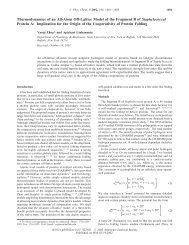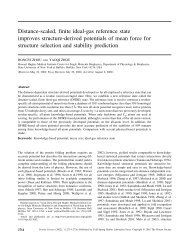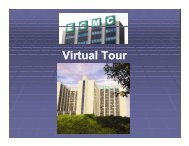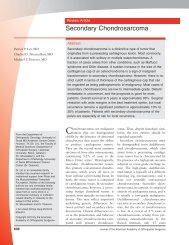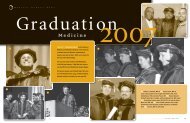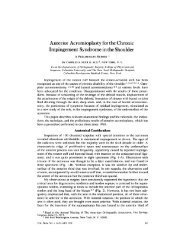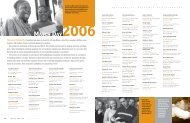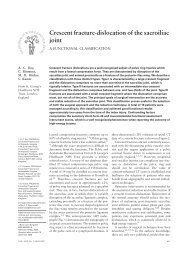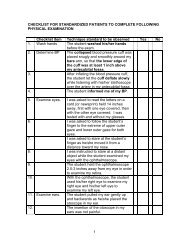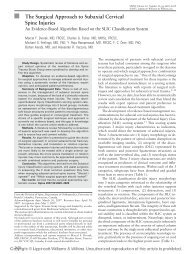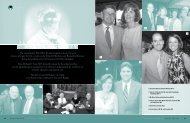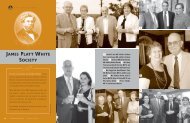Download Residency Training Program PDF - Ross Eye Institute
Download Residency Training Program PDF - Ross Eye Institute
Download Residency Training Program PDF - Ross Eye Institute
You also want an ePaper? Increase the reach of your titles
YUMPU automatically turns print PDFs into web optimized ePapers that Google loves.
• The resident should be familiar with the indications for evisceration,<br />
enucleation, and exenteration. The resident should understand the various<br />
modes of socket reconstruction as well as their indications, including<br />
mucous membrane grafting.<br />
ASSESSMENT—Te resident will be monitored on the evaluation of patients<br />
with post-traumatic or phthisical eyes and the management of anophthalmic<br />
patients will be reviewed with the resident in clinic.<br />
• The resident should be familiar with the common types of orbital tumors<br />
and the differential diagnoses of presentations or orbital tumors in various<br />
age populations. The resident should also understand the various surgical<br />
approaches to the orbit and recognize their indications.<br />
ASSESSMENT—Second year residents will be quizzed periodically in the clinic<br />
on the management of patients with orbital tumors.<br />
PROCEDURAL:<br />
• The second year resident will become familiar with basic assisting<br />
techniques in oculoplastics and learn surgical approaches to more<br />
complicated in-office procedures (ptosis repair, ectropion repair, etc.)<br />
ASSESSMENT—The second year resident will assist the attending in the minor<br />
procedure room in the after-clinic cases, and his/her performance reviewed<br />
and his/her abilities monitored.<br />
Third Year Residents<br />
COGNITIVE:<br />
• The third-year resident, in addition to the above, should understand the<br />
surgical management of all oculoplastic and orbital processes, as well as<br />
understand the inpatient management of oculoplastic and orbital disease.<br />
ASSESSMENT—The resident will discuss the management of all surgical cases<br />
with the attending preoperatively and will also demonstrate that knowledge<br />
intraoperatively.<br />
PROCEDURAL:<br />
• The resident will become proficient in the basic oculoplastic procedures<br />
required of a comprehensive ophthalmologist: simple ptosis repair,<br />
enucleation, ectropion and entropion repair, eyelid wedge resection; lateral<br />
canthoplasty; lid and canalicular laceration repair.<br />
ASSESSMENT—The resident will demonstrate proficiency by performing at<br />
least two of each of these procedures as primary surgeon during the<br />
40



